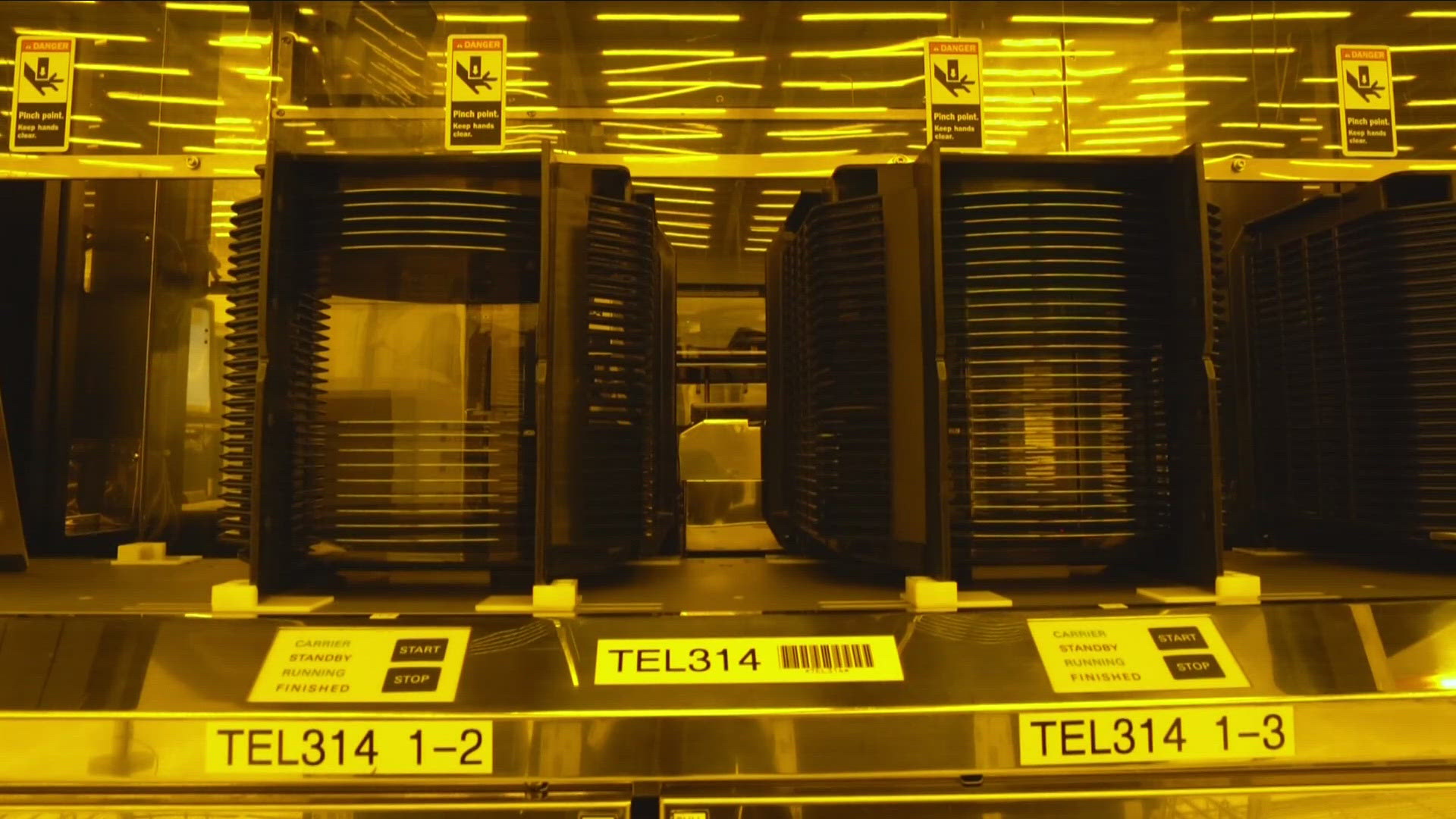BUFFALO, N.Y. — With winds of political change in Washington. D.C. , there are also some clouds of "clarification" still swirling around the previous federal, state, and local commitment of tax dollars to make upstate New York a future major producer of semiconductor chips.
2 On Your Side took a close look at the back and forth over this unusual election issue.
It happened last week at a news conference in suburban Syracuse as U.S. House Speaker Mike Johnson, who was there to back an incumbent Republican congressman, was asked about the 2022 CHIPS Act. It funnels federal tax dollars into computer chip production and was a catalyst for the $100 billion MICRON chip-making plantm as well as side money for various companies in Buffalo and other upstate cities. It could also utilize the University at Buffalo's new planned engineering school to train a workforce to run that mega-plant or related supply chain industries.
So this was the exchange which raised many upstate eyebrows just days before the election.
A reporter asked Johnson: "If you have a Republican majority in Congress and Trump in the White House, would you guys try to repeal that law?
Johnson replied, "I expect that we probably will, but we haven't developed that part of the agenda yet."
The Speaker then quickly backtracked after the news conference as his spokesman said he misheard the question, and then stated that he does support the Micron project and that no actual CHIPS Act repeal is planned. But he added there could be some streamlining and improvements for the original measure.
Johnson said “As I have further explained and clarified, I fully support Micron coming to Central NY, and the CHIPS Act is not on the agenda for repeal. To the contrary, there could be legislation to further streamline and improve the primary purpose of the bill — to eliminate its costly regulations and Green New Deal requirements.”
That question had in part been prompted by now President-elect Trump's comments in a Joe Rogan podcast interview last week that he feels that CHIPS act is "bad" as part of his overall tariffs plan and that he wants more chips made here in the United States.
Of course, reporters were told by U.S. Sen. Chuck Schumer, the proud Majority Leader and CHIPS Act advocate, that an emphasis on domestic U.S. computer chips manufacturing was the main purpose of the measure.
2 On Your Side got some reaction to this discussion on both sides.
U.S. Representative Tim Kennedy, a Democrat in the 26th District covering Buffalo and Niagara Falls, told us: "The idea that we potentially put at risk billions of dollars in investment that would transform all of New York State, including the central and upstate Western New York region, is lunacy and it, quite frankly, was out of touch."
But the additional Green Energy amendments in the CHIPS Act may be a sticking point for the incoming president and Republicans.
U.S. Rep. Nick Langworthy is a Republican in the 23red District covering Clarence and parts of Erie County, along with much of the Southern Tier. He said, "There are parts of the CHIPS Act that can be changed, and it doesn't have to be a wholesale repeal. Obviously, we want Micron to succeed in Syracuse."
But Langworthy added: "A lot of the Green New Deal policies, I think, is what the Speaker was alluding to. Some of the subsidies that are there for a lot of the Green Energy projects that really are not taking our economy in the right direction. They're shackling our ability to grow."
Since vote-counting is in some U.S. House races was still going on Thursday, it is still not clear if the House chamber stays Republican or goes Democrat. The Senate did flip to the GOP.
Some are concerned that total Republican control could bring some policy changes, but local Republicans would probably also fight to keep Micron and chip manufacturing-related federal dollars intact.
But again, president-elect Trump does not seem to like the CHIPS Act and in its current form. The summary of the bill does seem to have a lot of other provisions not related directly to making computer chips.
But it is also labeled as a "Science Act," as well with even NASA space planning covered in the legislative package.
And some could make the claim that the CHIPS Act is really a national security priority because every digital-related device used by the population or the military obviously needs them to function.

